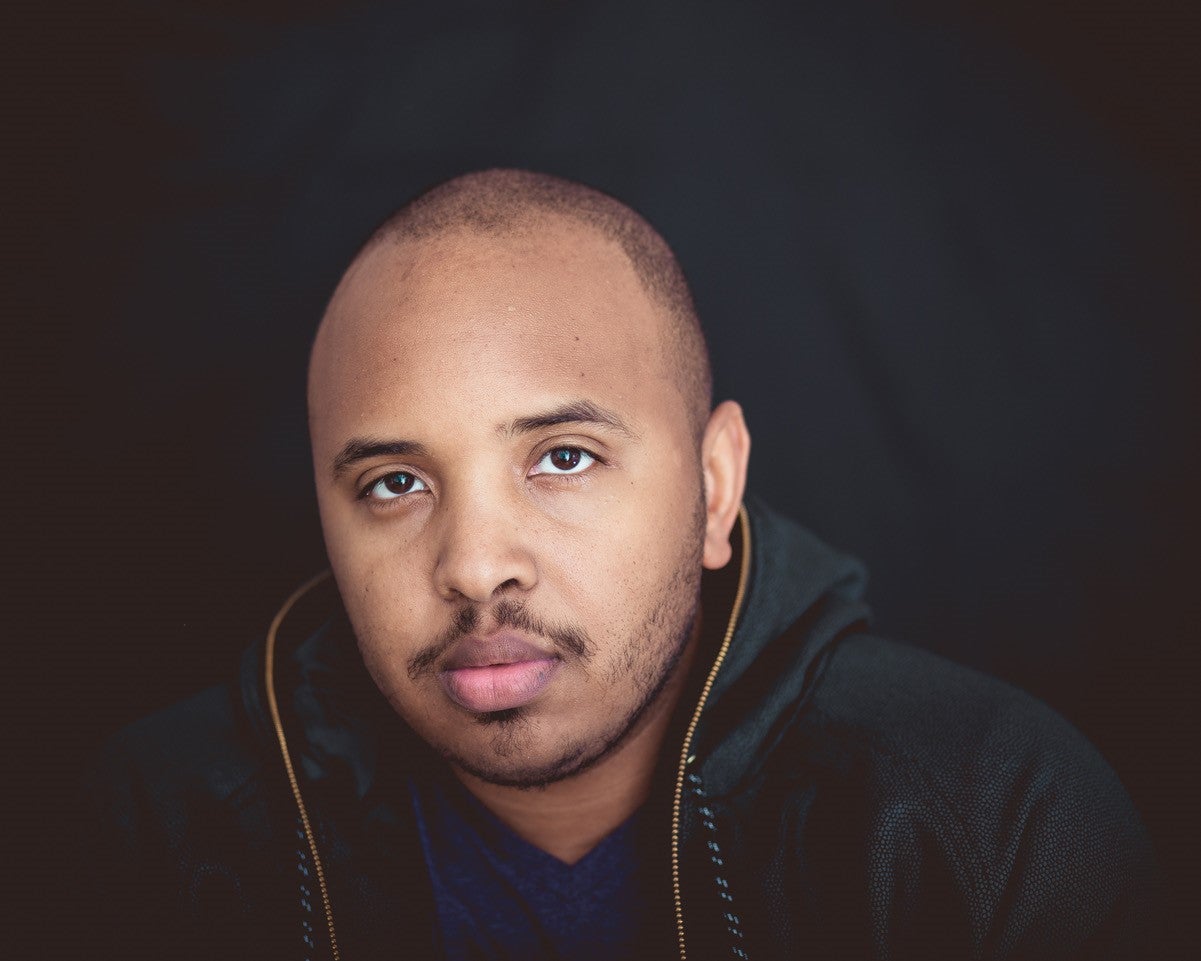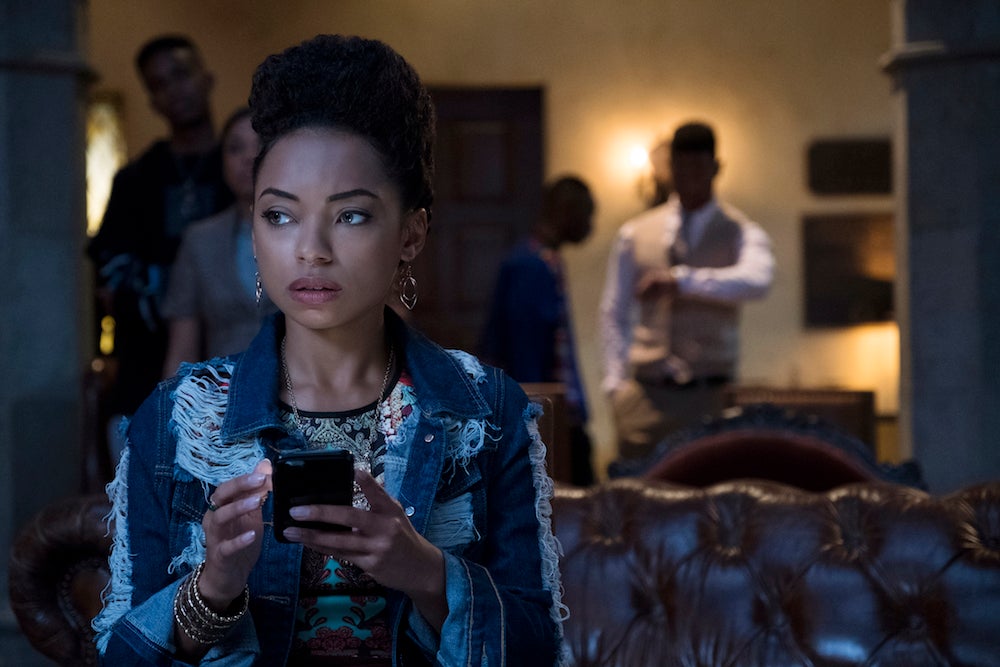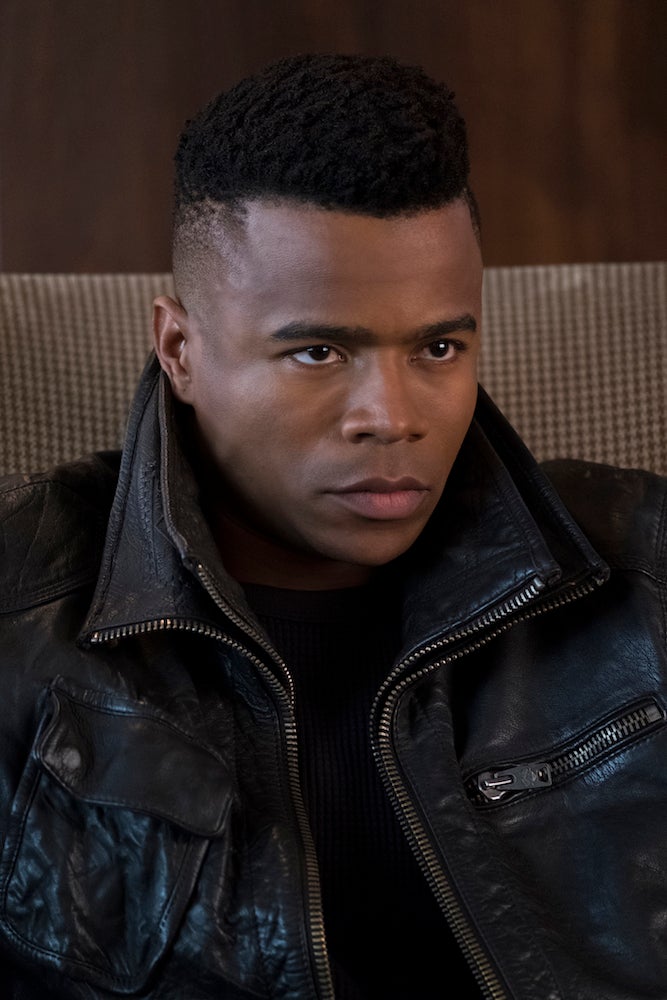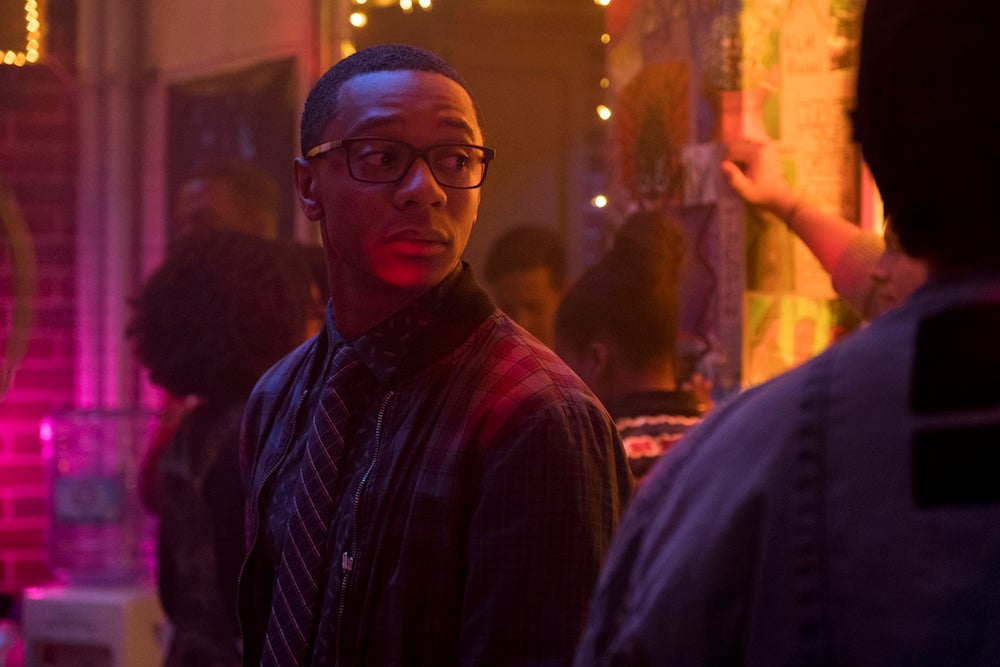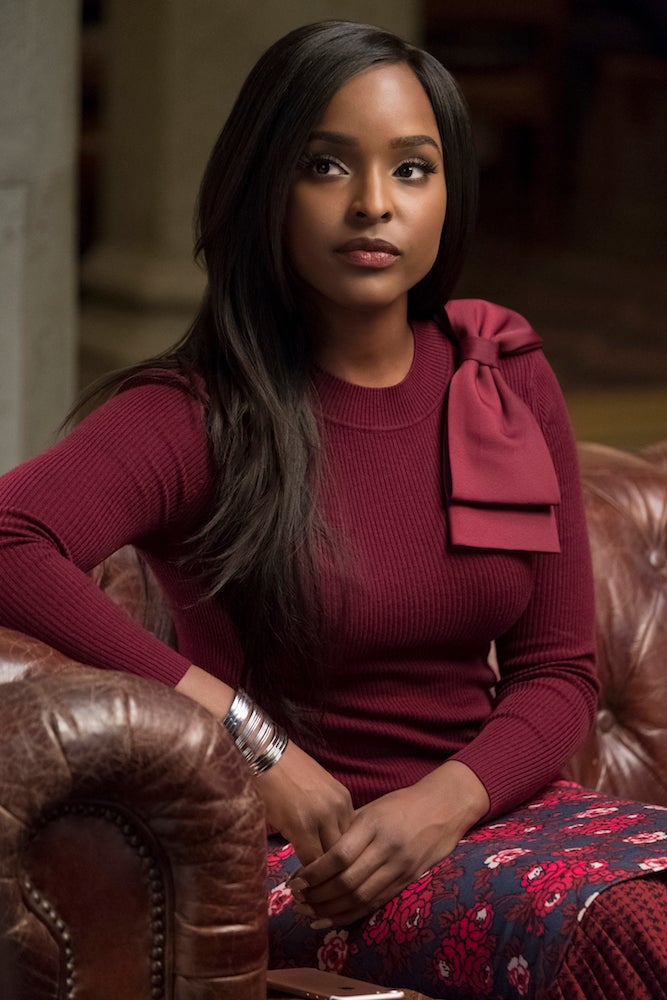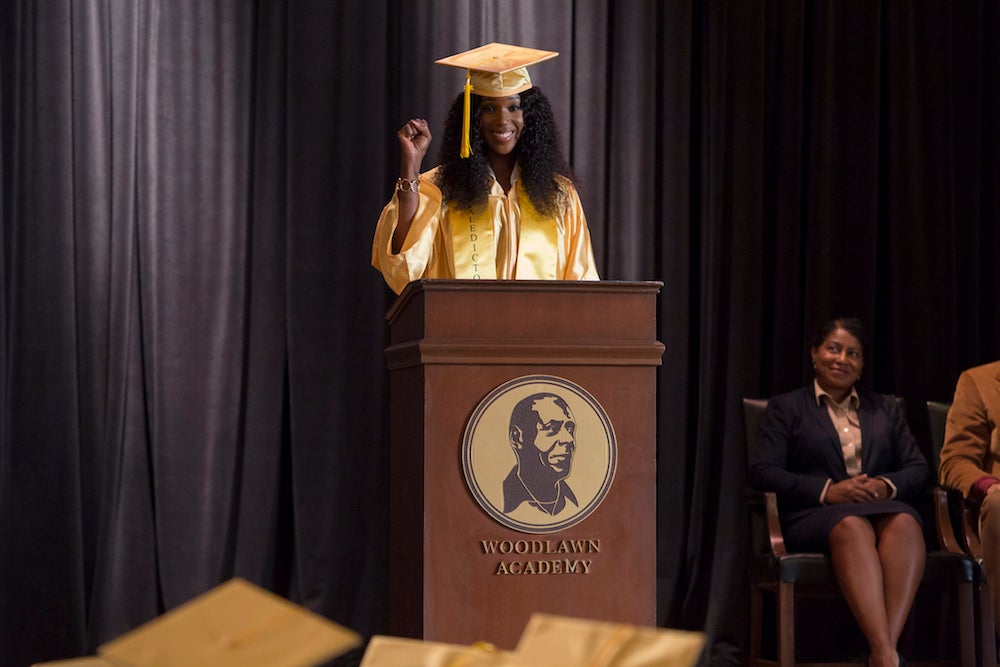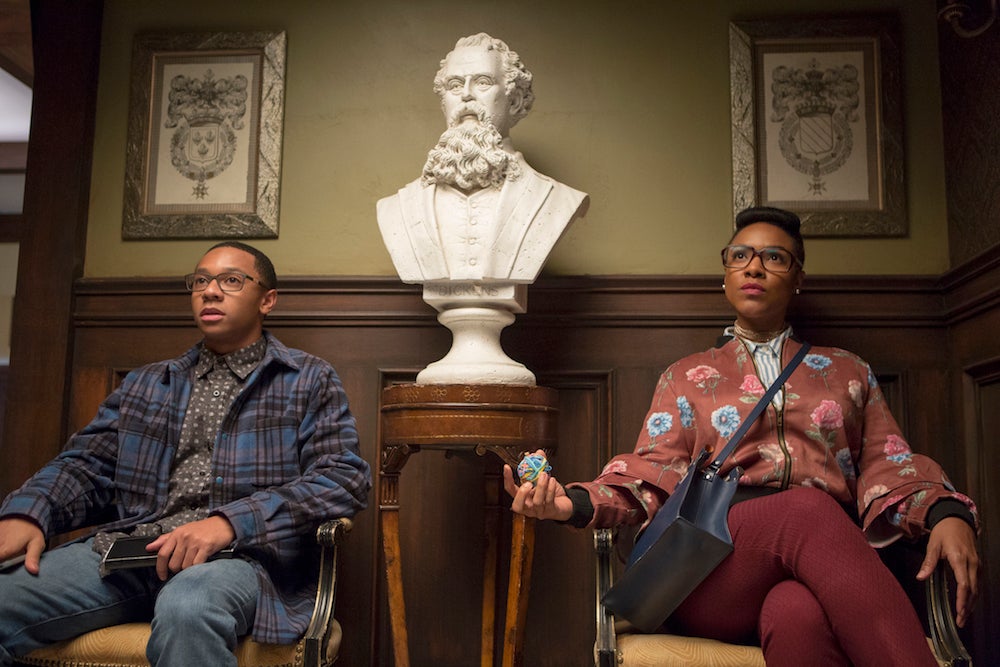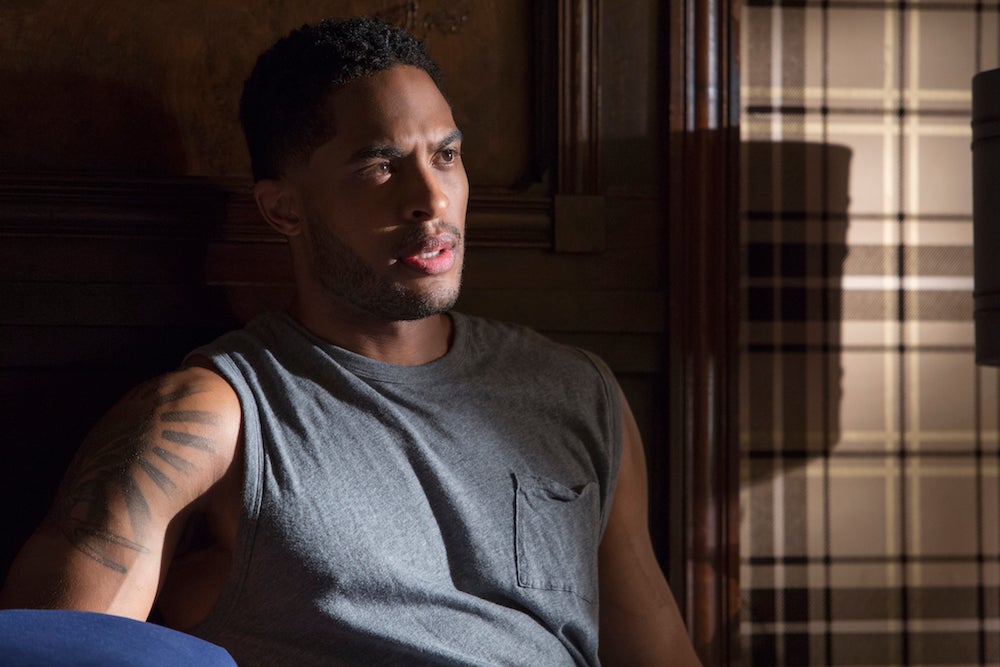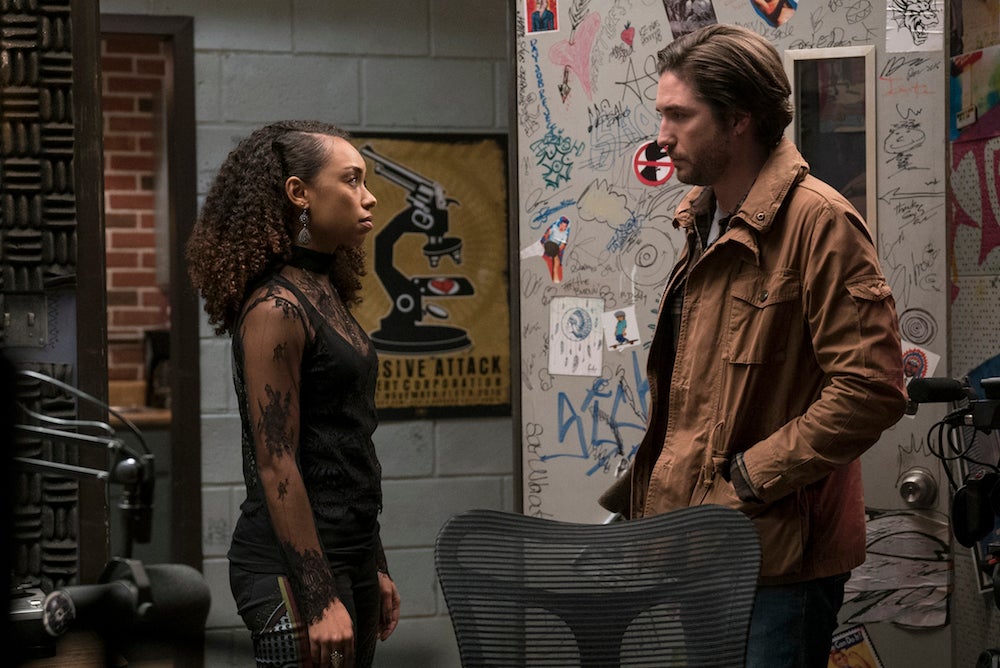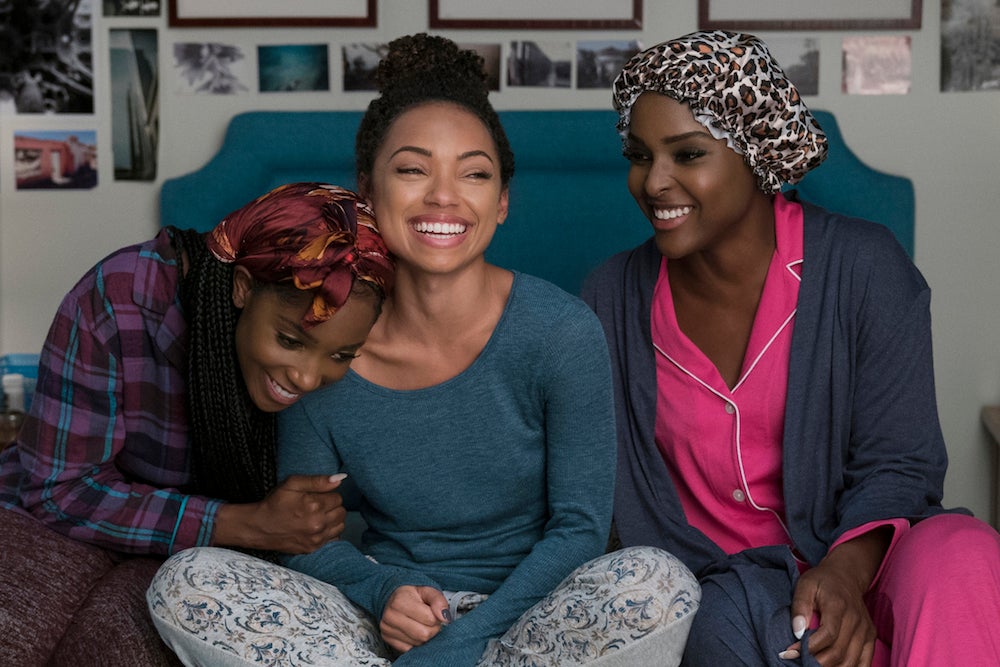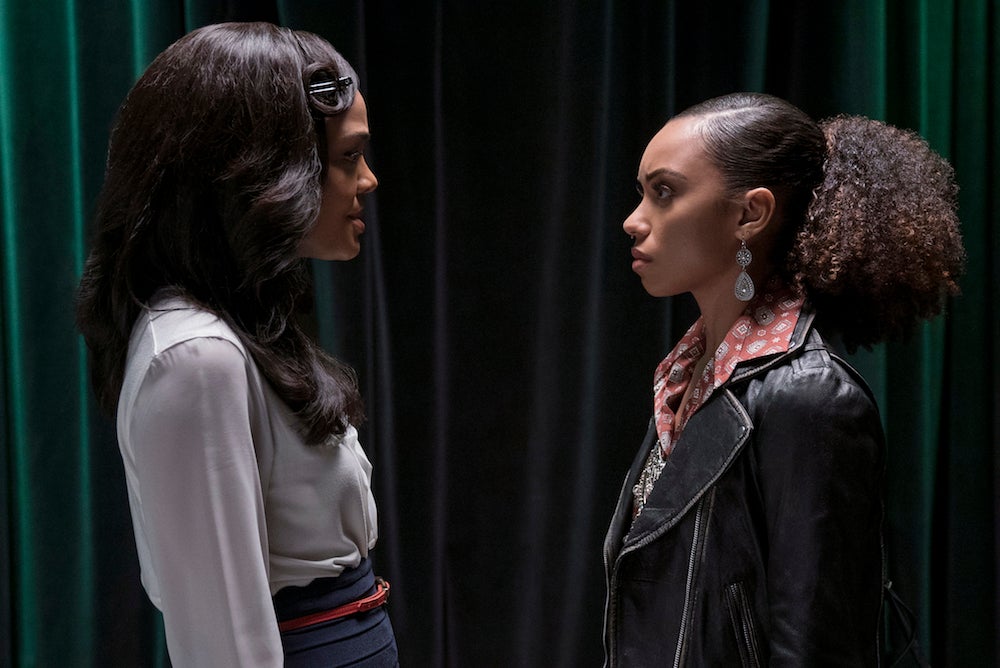“I do it for the snaps,” Justin Simien laughed, responding to all the praise season two of his hit Netflix dramedy, Dear White People, has garnered.
Recently, Simien spoke to ESSENCE for an in-depth interview, discussing each episode of the new season of the show, “the one thing we went into season two with was [the idea that] ‘we really can’t rest on the reviews of season one, we can’t rest on the laurels, we really have to outdo ourselves and go deeper, and go further, and respond to an urgent time.’” Season two does not disappoint.
So, here is a deep-dive, decoding messaging, discussing themes, and asking questions about everything season two throws at us, all the way up to that cliffhanger you couldn’t have seen coming — and even a glimpse into what it means for season three. We’ve broken it down by episode to make it easier for you to jump to your favorites, follow along with where you are in the season or go straight through it.
A warning: This conversation literally discusses every spoiler. If you’re in the process of watching the series, we’ve marked the dialogue to show where we are episode-by-episode, to help you along the way.
“I dealt with a lot of alt-right BS in the first season, and I was just so… at first taken aback, but then fascinated by the way that outrage has been weaponized in the years since the movie and the series,” Simien said of approaching the reintroduction to the series. “What started off as genuine ignorance and all that crap, became people who were intentionally lying to their base about what the show was.”
Simien saw his show becoming a building block for the alt-right and backlash in the comments, the ratings, and every place they could speak out against it — he and the team of writers saw that as what Sam (Logan Browning) would likely be encountering. That reality found its way into the episode in many ways, one of which literally speaking to the campus in a right-wing counter-show on the college station called Dear Right People.
“There were several inspirations for Dear Right People, including the rise of alt-right podcasts and radio shows on really refined college campuses that you’d never expect that,” he noted. “What [was] disturbing was that they were using the language of the oppressed to support their arguments of supremacy, and it was just something we had to do because we were seeing it happen on college campuses.”
The second episode comes from Reggie’s (Marque Richardson) point of view, taking a look at the after-effects of his harrowing moment being held a gunpoint by police during a campus party. “Obviously episode five was so impactful last season and the temptation for a lot of TV shows is to sort move on to the next encounter, the next story,” Simien explained. “I think part of the conundrum of being Black in this country is you not only have these micro-aggressions, and then actual aggressions but you’re also expected to sort of act as if you’re fine.”
Chapter 2 explores the reality of what usually doesn’t make news after a person is shot and killed by the police, or is the victim of police violence or over-reach, and then has to go on with their life: that life goes on, albeit changed. The writers and Simien felt they couldn’t ignore what so many Black men and women experience after the impact of a traumatic experience.
“We wanted to be realistic that this brotha is going to be dealing with this for a long time. It would be unrealistic, and a bit irresponsible, to just move on,” Simien said. He felt during the writing and researching of the season that there were so many angles that get glossed over or go completely ignored. “When we get into the weeds of this stuff, I honestly I find myself just weeping sometimes,” Simien confided. “I wanted to put an emotional core beneath all of it. You see Black folks protesting, being strong, and clapping back, but you rarely see us unpacking and dealing with the trauma of our experiences.”
The third episode sees Lionel (DeRon Horton) beginning to explore being out, gay, and Black at Winchester. Dealing with a common misconception that the gay experience is ubiquitous, monolithic, and open to everyone who opens their closet door, the episode takes Lionel through the realization that coming out is only the beginning.
“I had this critique in me about gay culture,” Simien admitted. “Particularly the way it’s shown in films, which is once you come out in a TV show it’s like you’re just accepted into this beautiful gay Mecca, you find your person, and have sex and just be free — and I’ve never had that experience, personally. And being Black and gay…it’s quite a conundrum because you’re dealing with two sets of marginalized communities. Both of which have their own versions of marginalization within.”
Simien wanted to show a character navigating the nuances of being gay, and to air his grievances with the encounters he, and many gay people, have experienced. One of those moments sees Lionel meeting another Black gay male student journalist while out. The two men strike up a conversation and seem to have a chemistry — until he drops the bomb, “No shade, but I’m not like, into other Black guys, just an FYI,” the character informs Lionel. “I can’t tell you how many times I’ve encountered that. It’s a bizarre arena that has really not been explored fully,” Simien emphasizes.
Another element of the episode Simien points out as important is in his beautifully straight, weed-loving roommate and friend, Troy (Brandon P. Bell). “We had that choice of ‘is Troy going to be weird about Lionel being gay?’ and frankly, I’ve seen that story a lot, it’s a true story that happens a lot, but I’ve also seen the opposite. There’s lots of Black, straight guys that don’t have a problem with gay guys,” he said. “The critique of homophobia in the Black community is a fair critique that I think exists in the culture, what I haven’t seen in the culture are gay and straight Black guys that are just homies. I haven’t really seen that in the culture, but that’s been my experience. I have lots of straight male friends that are just my homies.”
In this episode, Coco (Antoinette Robertson) is the center of the universe. “A couple writers had this idea that she should get pregnant and they brought it to me like ‘you’re not gonna like this, but….’” Simien recalled. He explained this plot twist was ultimately attractive due to the old school stigmas surrounding such circumstances. The idea that when women get pregnant and have to make the choice to have the baby or have an abortion, there are unique aspects of Blackness that aren’t seen on television.
“I can’t tell you how many women who are friends of mine have pulled me aside and said ‘you know five years ago I had to make this choice,’ and it’s something that I’ve noticed that Black women hold in a different way. We had the opportunity to give voice to that story and to not moralize it and say she was right or wrong, but to put out there how difficult a decision it is.” The women in the writers’ room wrote the episode, getting to tell the story on behalf of women who’ve had that experience, in an episode he refers to as “unique and beautiful.”
Coco also takes flack for the way that she uses her Blackness as a currency with her white classmates in a way that Simien says she uses to her advantage, to get ahead, in a way that many Black people have probably done, consciously or unconsciously. “Whether our intentions are noble or not, it’s a survival tactic,” simien begins. “The conundrum is when we go home we have to live with that choice and think about ‘oh God, did I encourage a stereotype? Did I do something that’s going to box me in? Did I do something that’s going to box other people in?’ And instead of putting a moral on it, instead of
putting a ‘you should do this [or that] on it,’ with CoCo I think we’re just exploring it. The pros and cons of when a person just leans into that reality.”
An unexpected twist in this episode is when Kelsey (Nia Jervier) casually comes out as a lesbian, sparking conversation online about seeing an unconventional image of a Black lesbian. Simien felt “Black lesbians really don’t occupy enough space in our culture, and I’m not a Black lesbian, so I’m not making The Black Lesbian Show, but in a show where all of the characters are dealing with a singular point of view, I thought it would interesting to at least begin to open that door, so we can get into it potentially in later seasons.” Simien said he believes one job of his show is to take the judgments viewers make about the characters and take you beyond and beneath them.
Actress Ashley Blaine Featherson’s much-awaited episode gives us Joelle’s perspective — and the first time we see her with a love interest (who is actually paying attention). Simien said “this one was for the Kellys.” He wanted to explore the experience of being gorgeous, talented, and darker brown-skinned and how so often the lighter-skinned friend gets more attention and popularity. The show has fans who can relate to her, which is why, from the beginning, she was always intended to be developed and get her own perspective.
Joelle’s character is “a fun character. She doesn’t have a chip on her shoulder, she’s incredibly erudite and intelligent, and well-adjusted.” The focus was showing that that girl has difficulty as well. Shamier Anderson, who plays Joelle’s doting classmate, Trevor King, got the role only partly because of their chemistry and the charm he brought to the character.
“I just thought he was smooth and charming,” Simien recalled, “but there’s also something in his performance that makes you go ‘hmmm, is everything right here?’”
Something about Joelle that we learned was that she — and Featherson — can sing. “It really just came out of a moment of, honestly, me and Ashley and my composer just sitting around singing ‘Tyrone,’” Simien shared. “I remember playing it in the writers’ room and it was very organic and it just became a part of the episode.”
Featherson’s version of the song is part of the soundtrack which is available on Spotfiy.
Simien lead this episode, his first time directing a ‘noir’-style piece. We see Lionel and Brooke (Courtney Sauls) begin an arc that will last to the end of the season, as they unearth the question of whether or not a secret society has existed, and may still be operating at Winchester. But what may truly be the breakout of Chapter 6 is Sauls’ portrayal of Brooke.
Based on Simien having known her since high school, he said she, like some of the other women in the show, don’t always check the prescribed boxes for Black actresses and have a different quality. “No one is checking for unique, quirky Black women, frankly. It’s not who Courtney is, but it came out of what I’ve always wanted to see Courtney play.” Simien said. “That combined with Jack Moore and Chuck Hayward, who wrote the episode and are just shady, funny people, we collectively created this person that we were just obsessed with.”
Simien says they loved the pairing of Lionel with Brooke because she’s the perfect foil for him. “She is outspoken, overly driven, she dominates a conversation. Where Lionel is sexually inhibited, she has NO inhibitions,” he laughed. “She’s an unlikely ally for him, [because] we always hate the people that show sort of show us who we need to be and I think Brooke is that for Lionel.” The pairing of the duo became “irresistible” to the writers while putting together the episode.
Troy also leads the seventh episode and he’s become “a shell” of a person because of his father’s (Dean Fairbanks) overprotection. Simien said that the end of last season saw that shell being cracked open — quite literally with the breaking of the windows. “We wanted to see what was [beneath] that,” Simien began, “so often underneath the roles that straight men play are boys who really haven’t had a chance to figure out what they want [and] who they would be if they weren’t so busy being all the things that they’re supposed to be.” And what better way to delve into someone’s psyche than with a ‘shroom trip, right?
Dean Fairbanks, played by Obba Babatundé, introduces Troy to what Troy would call “the Black Illuminati,” the secret society that Lionel, Brooke, and later Sam are looking for. Simien talked about the high stakes for Black wealthy people, having to represent so much for the culture, and also themselves, and the need to hold onto the power they have and Dean Fairbanks’ goal of trying to instill and pass that along to Troy.
Troy also tried his hand at standup comedy. “It’s a thread that we’d started within the film, that Troy has this secret passion to write jokes and be funny,” Simien said. “I don’t know that he’s great at standup comedy, but it’s a step. It’s a step in the right direction of the journey of figuring out who he was — and it just felt like the most terrifying thing to put him through.”
In what is called a “bottle episode” (an episode that stays within a show’s original set(s) and using only the series regulars), Sam & Gabe have the interaction that has been coming since their breakup last season. Simien was excited about the idea of locking them in a room. The writer of the episode, Jack Moore, has a playwriting background, which helped with crafting the story of Chapter 8.
Simien directed this episode, eager for the challenge of not being able to leave the campus radio studio, “The masters that I watch, like Mike Nichols or Sidney Lumet, those kinds of directors, they’re able to turn two characters in a room and make you feel the visceral-ness of that conversation.”
You might also notice this episode features two characters and almost no music. “It felt like anything more than the two of them would have been beside the point, breaking that tension,” he added. The two characters’ discussion, or argument, or interview, or… all of the above was representative of the debate within the writers’ room: What are both characters upset about and what do they have a right to be upset about? The writers wanted to make sure nobody was clearly the winner.
The summation of the argument, Simien said, was both characters trying to figure out if they could trust the other because they loved one another. “These are two people that, if it weren’t for the society they live in, would just be together,” Simien said. “In a lot of ways it’s about the things that keep us apart, the things that are important, the ways in which we want to feel heard, it’s about listening, and it’s about what a conclusion can look like because so many of us never get there when we have these conversations.” Then, Joelle shows up telling her she’s got to go home. Her dad has died.
Sam returns home, with Joelle and CoCo in tow, to her family. The first thing to note, this is the first time we’ve left campus (outside of a bar scene), to see the characters with their families. Telma Hopkins (best known as Aunt Rachel
from Family Matters) plays Sam’s aunt, greeting her at the door; Wendy Racquel-Robinson (The Game, The Steve Harvey Show) is cast as Sam’s mother. And the resemblance, frankly, is there.
Speaking of Wendy, Justin was excited about the casting, “I love using actors who you’ve seen them one way and you get to see them doing something else.”
“There was a certain kind of mom we knew she had to have once we met her dad,” Justin expounded on the need for a powerful female figure to play the woman that Sam would’ve come from. “Wendy hit those notes for us.”
One of the important moments for the writing team was when Sam hears her dad while going through his things, as some of the writers have experienced the loss of a parent. “The voices of our parents live on in our heads forever, no matter if we want them to or not,” he said laughing again. “Seeing someone thinking is hard to portray in a show, but that’s what she would be doing, she’d be absorbing this moment, kind of quietly [and silently].”
“I think our show really does look for the ordinary in the surreal, and the surreal in the ordinary. Whenever I’m sifting through my father’s things or looking at his photos, I’m always thinking about what his voice might sound like or what he might say to me.”
For Simien, the finale episode began forming for him with the encounter between Sam and Rikki Carter played by Tessa Thompson (who played Sam in the film the show is based on). He drew from trying to understand many alt-right leaders who were seemingly smart and thoughtful, but were “dying on the cross on some really insane ideas.” “It’s showbiz,” Simien said. “These people on CNN get paid to show up and not back down from their arguments, and to me, that’s Sam’s worst nightmare: being stuck in an argument that she began in her early 20s. That hair has to stay in the pompadour, and she has to stay militant, and she has to always date Black people; kind of trapped in a role she didn’t mean to create for herself.”
Simien said he asked himself “what is Ann Coulter like when she goes home at night and is talking to JJ [Watt]?” when thinking of the backstage debate. Another curveball you couldn’t have seen coming: Kurt (Wyatt Nash) hooking up with Coco, an event Simien calls “an Yvette Lee Bowser special.” “That was one of the things where she [said], ‘Ok, you’re going to think this is crazy, but…’ and I was like ‘no, I don’t think it’s crazy at all.’” He said it made sense in the writer’s room because they keep pushing the limits of who we believe these characters truly are.
We also got to see Joelle and Reggie finally get together. “In a show where we deal with so many interracial relationships, it was important to just have a solid Black on Black love situation go down, that wasn’t complicated,” Simien said, acknowledging that they’re aware they’ve been teasing this out for a long time, but have enjoyed making the audience wait for it. Also, the interesting question arises of whether Sam will feel something about the budding relationship in the next season.
As the episode and the season comes to a close, Lionel and Sam come to what they believe is the center of the secret society they’ve been looking for — only to find nothing. Until someone finds them. Out walks the yet unnamed series narrator (the ever mysterious-looking, Giancarlo Esposito) we’ve been spoken to for now two seasons. Something we may have missed, that was seemingly hinted at in the title card of the episode, this chapter seems to be told from his somewhat-removed perspective. Was that always the plan!?
“There’s always been a kind of acknowledgment on the narrator’s part that he’s not just this omniscient voice that you’re just listening to. I knew I wanted to do something different with that character, but I also knew that this season is really talking about considering the source. “I thought [adding] the narrator into the narrative was a good way to sort of hit you with ‘whoa, everything that I’ve been told about this show is coming from a point of view. It’s coming from a person, who may have motives, and who may have other things going on that have not been disclosed to us.”
Justin said he and the team have a certain idea about where that will take us…but we’ll have to wait for the third season.
“I thought it was a good way [to end it], thematically, that summed up what the season was about, which is ‘think about who’s telling you the things you think you know.’”
The entire second season of Dear White People is on Netflix now!
